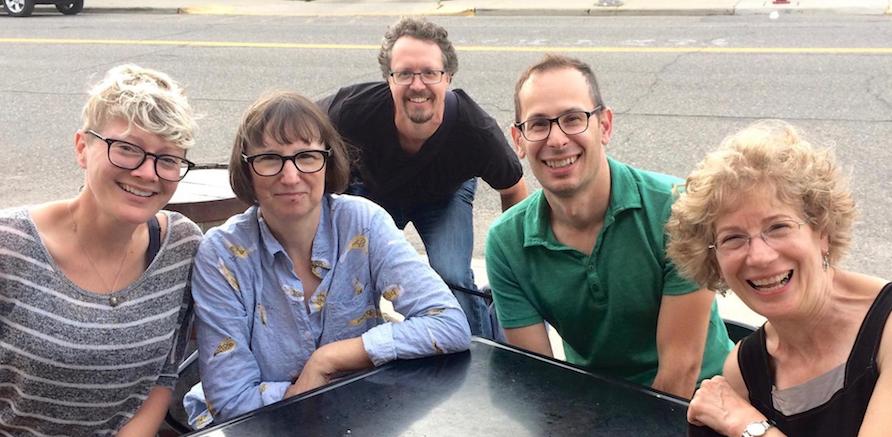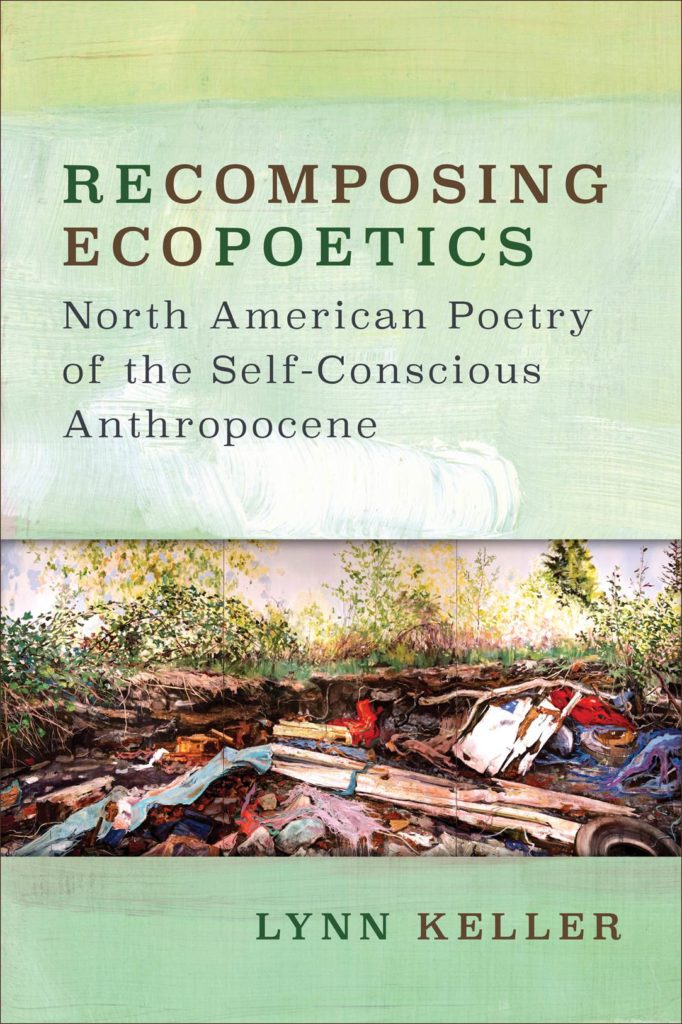A poetics that can operate in the interrogative, with epistemological curiosity and ethical concern, is not so much language as instrument to peer through as instrument of investigative engagement. As such it takes part in the recomposing of contemporary consciousness, contemporary sensibilities.
—Joan Retallack, “What Is Experimental Poetry & Why Do We Need It?”
My most recent book, entitled Recomposing Ecopoetics: North American Poetry of the Self-Conscious Anthropocene, was published in 2018 by the University of Virginia Press. The publisher has described the book as follows:
In the first book devoted exclusively to the ecopoetics of the twenty-first century, Lynn Keller examines poetry of what she terms the “self-conscious Anthropocene,” a period in which there is widespread awareness of the scale and severity of human effects on the planet. Recomposing Ecopoetics analyzes work written since the year 2000 by thirteen North American poets–including Evelyn Reilly, Juliana Spahr, Ed Roberson, and Jena Osman–all of whom push the bounds of literary convention as they seek forms and language adequate to complex environmental problems. Drawing as often on linguistic experimentalism as on traditional literary resources, these poets respond to environments transformed by people and take “nature” to be a far more inclusive and culturally imbricated category than conventional nature poetry does. This interdisciplinary study not only brings cutting-edge work in ecocriticism to bear on a diverse archive of contemporary environmental poetry; it also offers the environmental humanities new ways to understand the cultural and affective dimensions of the Anthropocene.
This interview published by the online magazine Rorotoko in January 2018 offers an overview of the book’s scope and approach.
In May 2018, I was interviewed about the book for the web publication Edge Effects by Sara Thomas. The link includes the full audio and an edited transcript of our conversation.
Contents:
Introduction: Beyond Nature Poetry
Contains discussion of poems by Wendell Berry, Mary Oliver, and Evelyn Reilly
- “In Deep Time into Deepsong”: Writing the Scalar Challenges of the Anthropocene
Contains extended discussion of work by Julianna Spahr, Forrest Gander, Ed Roberson
- Toxicity, Nets, and Polymeric Chains: The Ecopoetics of Plastic
Contains extended discussion of work by Adam Dickinson and Evelyn Reilly
- “Under These Apo-calypso Rays”: Crisis, Pleasure, and Eco-Apocalyptic Poetry
Contains extended discussion of work by Jorie Graham and Evelyn Reilly
- Understanding Nonhumans: Interspecies Communication in Poetry
Contains extended discussion of work by a.rawlings, Jody Gladding, Jonathan Skinner
- Global Rearrangements: Sense of Place in Twenty-first-Century Ecopoetics
Contains extended discussion of work by Juliana Spahr, Forrest Gander, Jena Osman
- Environmental Justice Poetry of the Self-Conscious Anthropocene
Contains extended discussion of work by Mark Nowak and Ed Roberson
Coda: Writing the Self-Conscious Anthropocene
Discusses a poem by Brenda Coultas

